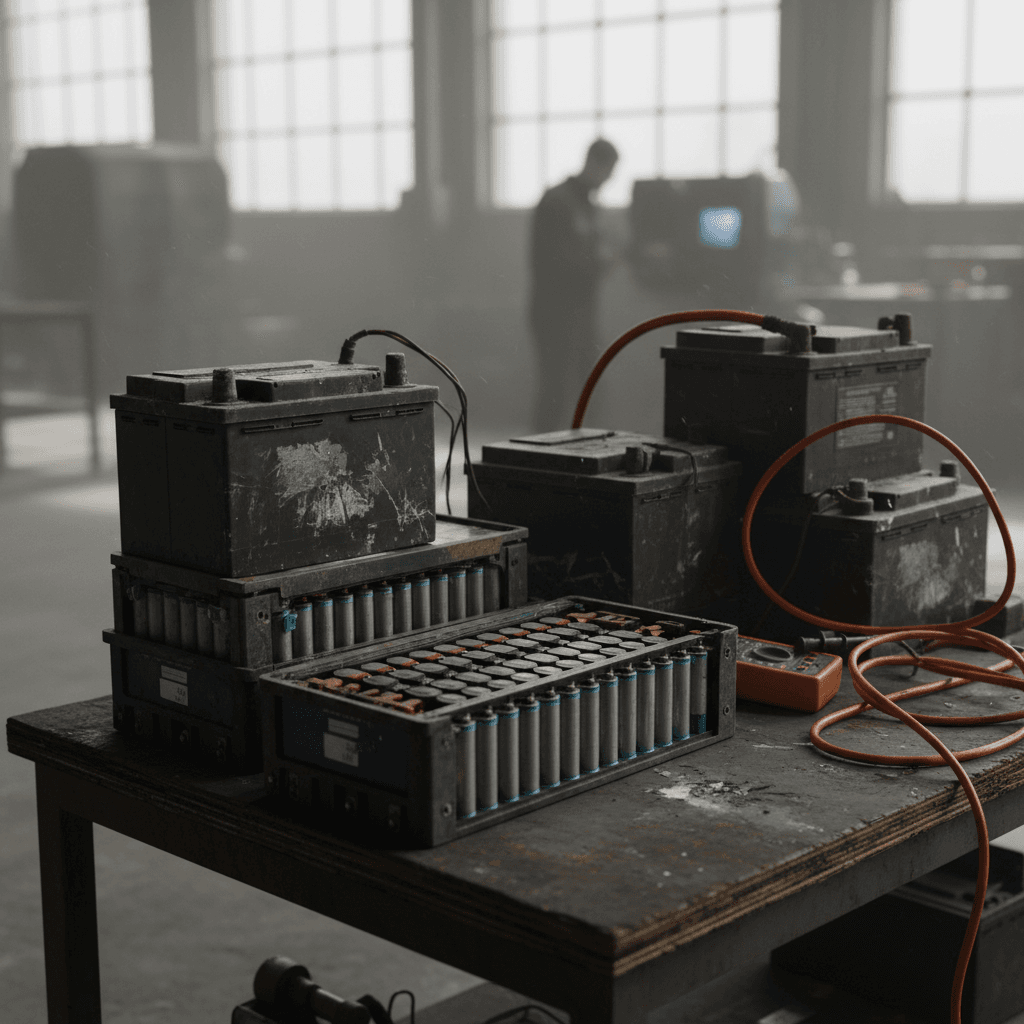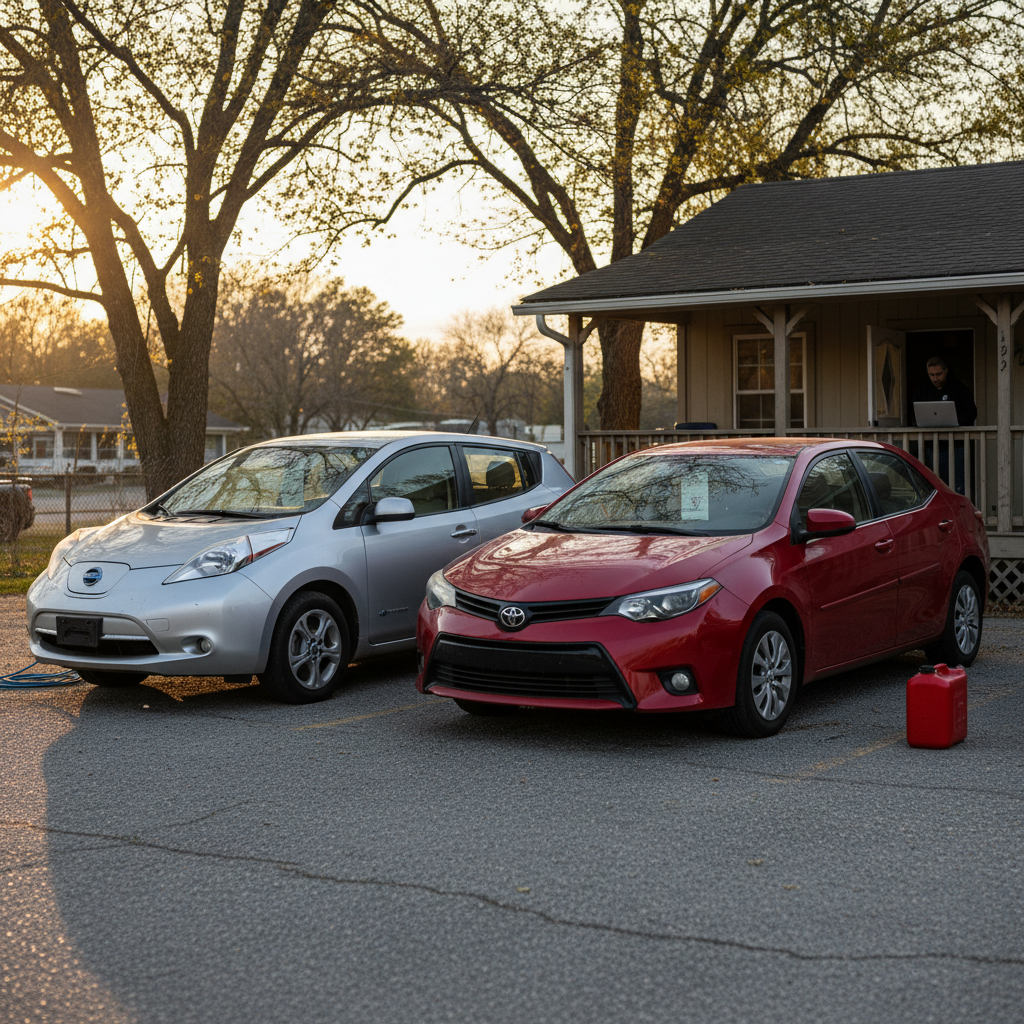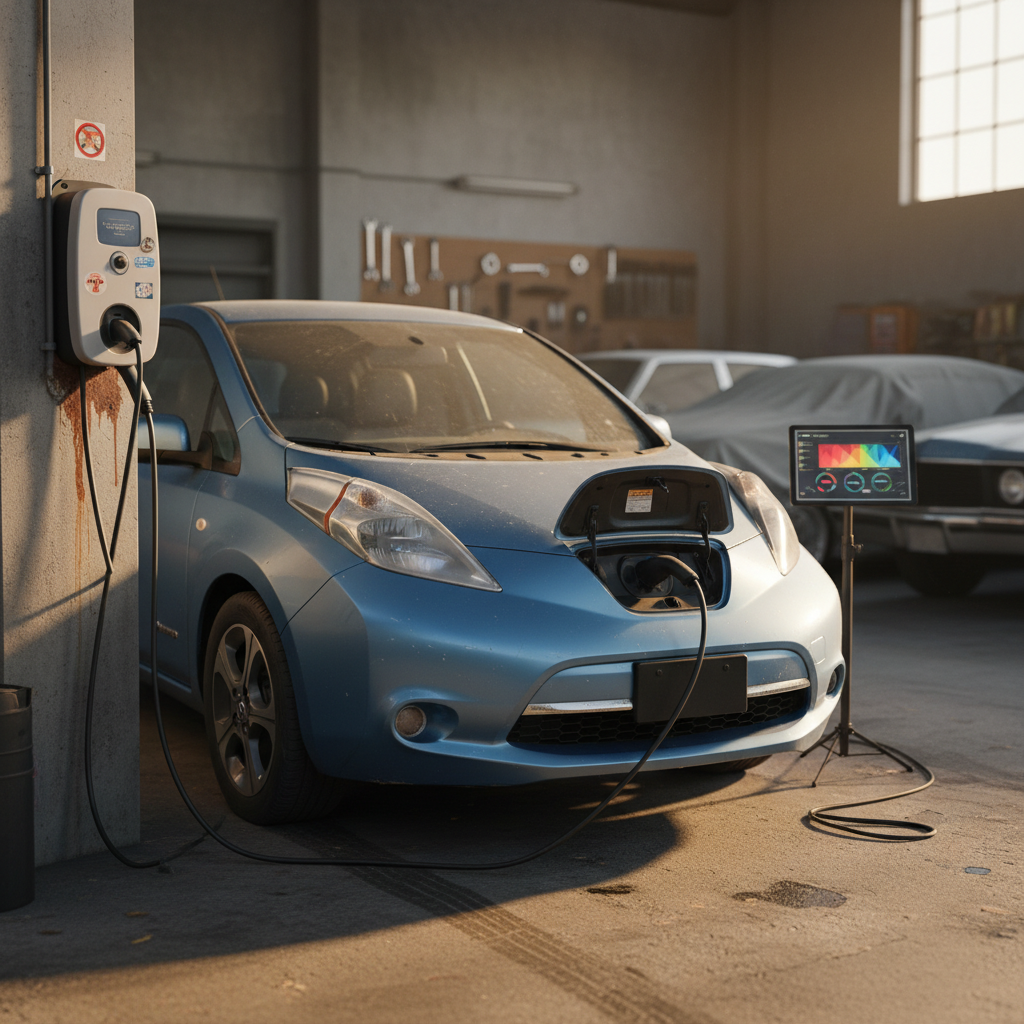If you’re wondering where to buy used car batteries, you’re usually in one of two situations: you need a cheap 12‑volt replacement to keep an older car on the road, or you’re thinking about reusing an EV or hybrid battery pack for a project or to save money on repairs. Those are very different worlds, with very different levels of risk. This guide walks through the safest places to buy, what the prices and pitfalls look like in 2025, and how to decide when a used battery actually makes sense.
Two very different questions
Why people buy used car batteries in the first place
Common reasons drivers look for used batteries
Most searches fall into one of these buckets
Save money now
Reduce waste
DIY & projects
Those motivations are all valid. The key is understanding the trade‑off: every used battery is closer to the end of its life than a new one. Your job is to make sure the discount you’re getting is big enough to justify the shorter life and added risk.
Used 12‑volt vs. used EV batteries: totally different worlds
Conventional 12‑volt car batteries
- Power your starter motor, lights, accessories.
- Low voltage (12–14V), relatively low energy content.
- Widely available as used or refurbished from parts stores, junkyards, and recyclers.
- Failure is inconvenient, but usually not catastrophic if you’re paying attention.
Hybrid & EV high‑voltage batteries
- Hundreds of volts and many kWh of energy.
- Heavy, complex packs with integrated cooling, electronics, and safety systems.
- Sourcing used packs is mostly a B2B game today, OEMs, dismantlers, and specialized marketplaces.
- Improper handling can cause electric shock, fire, or permanent vehicle damage.
Respect high voltage
Where to buy used 12‑volt car batteries
For a regular gas or diesel car, or even the 12‑volt accessory battery in many hybrids and EVs, you have a reasonably mature used‑battery market. Here’s where to look, and what to watch out for.
Common sources for used 12‑volt car batteries
Each option balances price, convenience, and risk differently.
| Source | Typical Price Range (USD) | Pros | Cons |
|---|---|---|---|
| Auto parts chains (refurbished) | $70–$130 | Load‑tested, often with 30–90 day warranty, easy returns | Selection varies, not always much cheaper than new |
| Independent battery shops & recyclers | $40–$100 | Specialists who often recondition and test batteries; local support | Quality varies, reputation matters, may be cash‑only or local pickup |
| Local salvage yards / auto dismantlers | $25–$80 | Very cheap, wide selection of OEM batteries from crashed vehicles | History unknown, limited or no warranty, you need to know how to inspect |
| General repair shops | $40–$120 | Shops sometimes resell recent trade‑ins that tested fine | Inventory inconsistent; may mark up prices vs. recyclers |
| Online marketplaces (classifieds) | $10–$60 | Lowest prices; sometimes people just want them gone | Highest risk of junk batteries, scams, and no recourse if it fails |
Start with outlets that actually test and warranty their batteries, not random classifieds.
Ask about testing and warranty

Where to buy used hybrid and EV batteries
Once you move beyond a 12‑volt battery into hybrid or EV packs, you’re in a more specialized ecosystem. The good news is that second‑life EV batteries are now big business in North America; the bad news is that most of that activity is still business‑to‑business, not walk‑in retail. Here are the main channels.
Main sources for used hybrid & EV batteries
Some are realistic for consumers, others are aimed at professionals
OEM and dealer channels
Auto dismantlers & recyclers
Hybrid battery specialists
Second‑life EV battery marketplaces
If you’re thinking about a DIY stationary storage project using EV modules, say Nissan Leaf or Tesla modules, you’ll also find niche online sellers that harvest and test packs, selling individual modules with a stated capacity and cycle count. These can be compelling for experienced builders but are not plug‑and‑play, and you’re largely on your own for safety and integration.
Don’t experiment with high‑voltage alone
Price expectations and second‑life market trends
Second‑life EV batteries are scaling up fast
For a conventional 12‑volt battery, the math is straightforward: a new unit might cost $130–$230 installed at a shop, while a refurbished or used unit with a short warranty might come in at $60–$120. If you’re selling the car soon or it’s not a mission‑critical vehicle, that discount can be worth it.
Hybrid and EV packs are a different story. Factory‑new replacements can run from a few thousand dollars for common hybrids into five figures for high‑end EVs. Refurbished packs from reputable specialists often land at 40–70% of the cost of a new pack, which is only a good deal if the warranty and documentation are similarly robust. A mystery pack from a dismantler that saves you 80% up front can be a terrible value if it fails in a year and takes your car with it.
Pay for transparency, not just cheap kWh
How to check a used car battery before you buy
Quick checklist for evaluating a used battery
1. Confirm the exact part number
Battery sizing is more than just “it fits in the tray.” Make sure the group size, terminal layout, and cold‑cranking amps (for 12‑volt) or pack ID (for hybrids/EVs) match what your vehicle calls for.
2. Ask for testing results
For 12‑volt batteries, a printout or photo from a modern tester should show voltage, cold‑cranking amps, and a pass/fail verdict. For high‑voltage packs, you want documented <strong>state of health (SOH) in %</strong>, measured capacity, and any cell‑level faults.
3. Inspect the case and terminals
Avoid any battery with cracked cases, bulging sides, corrosion that won’t clean up, or melted/loose terminals. Physical damage is both a performance and safety red flag.
4. Check the date code
Most lead‑acid batteries have a date code stamped or labeled. As a rule of thumb, don’t pay much for anything more than 3–4 years old unless it’s a specialty deep‑cycle or has exceptional test results.
5. Understand the warranty in writing
Is it a 30‑day, 90‑day, or 1‑year warranty? Pro‑rated or full replacement? Do you need to bring the vehicle back for testing, or just the battery? Get this clear before you swipe your card.
6. For EV packs, confirm who handles programming
Many modern EVs require software pairing or initialization after a pack swap. Clarify whether the seller or installer will handle this, and whether the car’s OEM systems will still report accurate range and diagnostics.
Let the installer be the seller
Safety and legal considerations
Batteries sit at the intersection of hazardous materials, consumer product safety, and, when you’re talking EVs, high‑voltage electrical work. That means there are a few lines you really don’t want to cross.
- Follow local rules for transporting and disposing of batteries; many states treat them as hazardous waste.
- Never ship high‑voltage packs casually, commercial carriers have strict rules for packaging, declaration, and labeling.
- Don’t bypass vehicle safety systems or modify packs unless you fully understand the implications for crash safety and warranties.
- Be wary of “rebuilt” high‑voltage packs assembled from mismatched modules with unknown histories; they may work initially but age unpredictably.
- Keep children, pets, and flammables away from any battery testing or charging setup. Have an appropriate fire extinguisher handy.
Your homeowner’s insurance cares
When a used battery is a bad idea
Probably skip the used option when…
- The car is new enough that you care about full warranty coverage and resale value.
- You rely on the vehicle for long daily commutes or ride‑sharing income.
- The price difference to new is small once you factor in testing, installation, and downtime.
- The seller can’t provide any meaningful test data or written warranty.
Used can make sense when…
- The vehicle is older and you mainly need a year or two of reliable service.
- You’re selling the car soon and need it to pass inspection or start for test drives.
- You’re working with a reputable specialist offering a robust warranty on a refurbished pack.
- You’re an experienced hobbyist building stationary storage with appropriate safety systems.
Think in total cost per year, not just sticker price
Frequently asked questions about used car batteries
FAQ: where to buy used car batteries and what to expect
The bigger picture: battery health and resale value
Buying used car batteries isn’t just about finding the lowest price; it’s about understanding how battery health shapes the total cost of ownership of the vehicle or project you’re working on. With 12‑volt batteries, that usually means balancing a modest discount against a somewhat shorter lifespan. With hybrids and EVs, it means treating the battery pack as a major asset that deserves serious testing, documentation, and professional installation.
If you’re driving, or thinking about buying, a used EV, this is exactly why platforms like Recharged exist. Every EV on our marketplace comes with a Recharged Score battery health report, transparent pricing, and EV‑specialist support so you’re not guessing about the most expensive component in the car. You can focus on finding the right vehicle and financing, while we help you understand the state of the pack that powers it. Whether you buy new or used batteries, the more clarity you have on battery health, the better your long‑term ownership experience will be.



